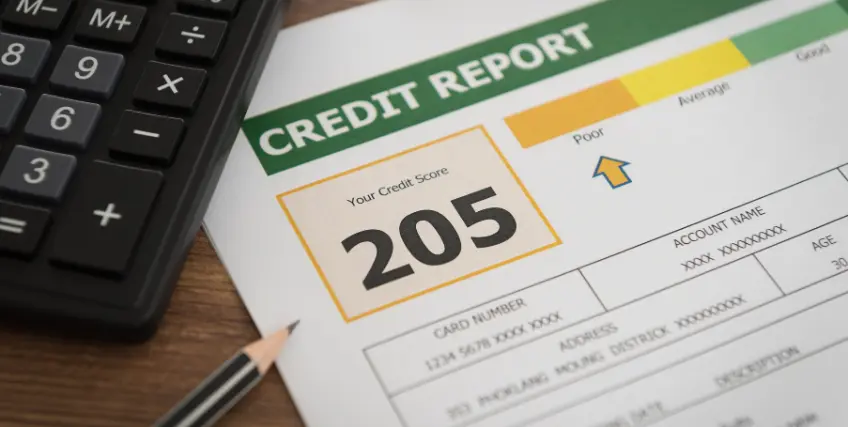Can You Renegotiate Terms on MCA Cash Financing After a Default?
March 4, 2025 | Last Updated on: March 4, 2025

What Business Owners Need to Know
If a small business owner defaults on a merchant cash advance (MCA), it’s crucial to understand if they can renegotiate its terms.
An MCA (merchant cash advance) is a lump sum payment to a business in exchange for an agreed-upon percentage of future credit card and/or debit card sales. Lenders base them on small businesses’ future cash flows and personal assets. For small businesses, navigating MCA cash financing defaults and debt relief can be extremely challenging and detrimental.
Small business owners can default on MCA repayments to their advance funding providers due to their financial situation. They might need better management or budgeting, or economic circumstances, such as high interest and inflation, can hurt them.
What is a Merchant Cash Advance for a Small Business Owner?
The term MCA is now commonly used to describe a variety of small business financing options characterized by short payment terms (generally under 24 months) and small regular payments (typically paid each business day) as opposed to the larger monthly payments and longer payment terms associated with traditional bank loans.
For small business owners, navigating MCA cash financing and repayment options can take time and effort. Several factors, such as credit scores and interest rates, are considered for business borrowers.
The consequences of MCA cash financing defaults can be financially heavy for small business owners. These can include legal actions from the lender, an impact on the SMB’s credit score, or collection efforts.
Renegotiating the terms of an MCA cash financing loan with lenders—or advance funding providers- can be difficult, but it’s not impossible.
Here is what small business owners need to know if they want to renegotiate the terms of an MCA in case of a default.
Pros and Cons of an MCA Cash Financing for Small Business Owners
MCA cash financing, or a cash flow loan—is generally a beneficial option for small business owners when their bank or other traditional lenders reject them for a business loan.
As the Small Business Administration (SBA) notes, “cash advances are a form of financing made against your future receivables or credit card receipts. Like any type of financing, there are pros and cons.”
One advantage of MCA cash financing is that it can give fast funding. Additionally, a poor credit score is generally not an impediment, as the business’s sales dictate the repayments and terms. When sales are smaller, so are the repayments. These can be very useful for small business owners without alternatives because of a poor credit score.
There are also some disadvantages to getting merchant cash advances.
- MCAs don’t have the same protections as small business loans.
- MCA cash financing agreements can become expensive. If the small business generates higher sales, it must repay the lender faster.
- Failure to repay MCAs can affect credit reports.
Another critical point is that instead of interest rates, “MCAs use factor rates to calculate the cost of the advance. Factor rates are expressed as decimal figures rather than percentages, typically ranging from 1.1 to 1.5. The factor rate determines the total amount the business must repay,” according to debt solutions law group Tayne Law Group. The percentage of the sales is also called a “holdback rate.”
Consequences of Defaulting on an MCA Cash Financing
Defaulting on an MCA cash financing can be overwhelming and detrimental for owners. Here are some of the potential consequences from MCA funding providers.
- Collection Effort
Merchant cash advance companies may take decisive actions to recover the outstanding amount, which can involve collection agencies or pursuing legal measures.
- Impact on Small Business Owners’ Business Credit and Personal Credit
Defaulting on an MCA can also severely impact both business and personal credit scores. This can hinder an SMB’s chance to secure future funding or make this potential new loan much more expensive.
- Legal Action
Lenders can take legal action against the small business borrower to recover the debt.
If you default on a merchant cash advance, the lender might freeze your accounts. MCA agreements can sometimes include a confession of judgment clause.
Seizure of Business Assets
Another detrimental effect of an MCA default is that lenders can go after the small business owner’s business assets.
- Reputation Damage
A default could also have a significant impact the SMB’s reputation and make future business plans more difficult.
What Are the Options for Defaulting on an MCA?
Defaulting on a business merchant cash advance (MCA) can adversely affect your finances. Lenders have a variety of options, from collecting credit card sales, to legal actions.
If you’re struggling with payment, ensure you communicate with the lender as soon as possible so that you can figure out a mutually beneficial way out of the situation.
When a small business defaults on an MCA, there are a few potential avenues it can consider.
These can range from consulting with a financial advisor to trying to renegotiate the outstanding debt with the lender or consolidating the MCA debt.
How Small Businesses Can Renegotiate MCA Terms and MCA Debt with Lenders
Contact your lender ASAP: SMBs should act as quickly as possible and contact their MCA lender. They may help you restructure your deal.
Consult with a financial advisor: A financial advisor or a debt restructuring or debt relief consultant with experience with MCAs can provide guidance.
You can offer modifications to your business cash advance company. For instance, you can request specific changes to the repayment terms, including lower payment amounts or extended repayment periods, to better reflect your current cash flow situation.
Remember to provide documentation: To make a stronger case, support your request for renegotiation with comprehensive financial projections and evidence of unforeseen financial challenges to show why the new terms are necessary.
Consider an MCA consolidation: Another option is consolidating your MCA debt with your merchant cash advance company. As Tayne Law Group noted, “this works like any other debt consolidation.” Consolidating your MCA into one loan can result in a lower interest rate.
“You take out a lower-interest installment loan to pay off one or more existing, high-interest debts, such as an MCA. Then, you focus on repayment of the new loan, which has a single, fixed monthly payment,” according to Tayne Law Group.
File for bankruptcy: If renegotiating the terms of the MCA with your lender fails, you can file for bankruptcy. This will affect your credit score. As Business Debt Law Group explains, “bankruptcy should be considered as a last possible resort, but it also can mean the difference between saving your business and losing your business.
FAQs about MCA Cash Financing
What is a merchant cash advance?
A merchant cash advance is a type of financing. The lender allocates a lump sum of capital to a business in exchange for a percentage of its future daily credit card sales or a fixed daily/weekly withdrawal from its bank account.
What are the consequences for small business owners defaulting on a merchant cash advance?
For small business owners, defaulting on an MCA cash financing can be highly detrimental and represent a contract breach. The consequences can be wide-ranging. Lenders can take legal action or seize the business assets. There are also reputational risks to consider.
How can small businesses renegotiate the terms of merchant cash advances?
First, act fast to renegotiate the terms of an MCA. Contact the lender and explain your situation. Then, you can offer new terms based on your circumstances or consider a consolidation.
How do you know if an MCA is right for your business?
An MCA can be an option for small businesses in need of fast capital, but don’t qualify for traditional loans. Because of the high fees tied to the MCAs, businesses that have high sales and can repay faster are usually more suited for these.
Recent Articles
Related Articles

Can You Renegotiate Terms on MCA Cash Financing After a Default? What Business Owners Need to Know
November 27, 2024

Business Loan or Merchant Loan? Understanding Loan Options for Your Business
November 25, 2024

Avoiding the Debt Trap: How Stacking MCA Business Financing Can Hurt Your Business Credit
November 7, 2024

Why MCA Business Funding May Be Ideal for Retailers Looking to Expand Inventory
November 5, 2024

Merchant Cash Advance vs. Asset-Based Lending: Which is Right for Your Business?
January 10, 2025

Merchant Cash Advance vs. Traditional Business Loans: Which is Right for Your Business?
January 10, 2025

Merchant Cash Advance vs. Line of Credit: Which is Right for Your Business?
January 9, 2025

5 Things Every Small Business Owner Wishes They Had Known When They Started
January 9, 2025

































